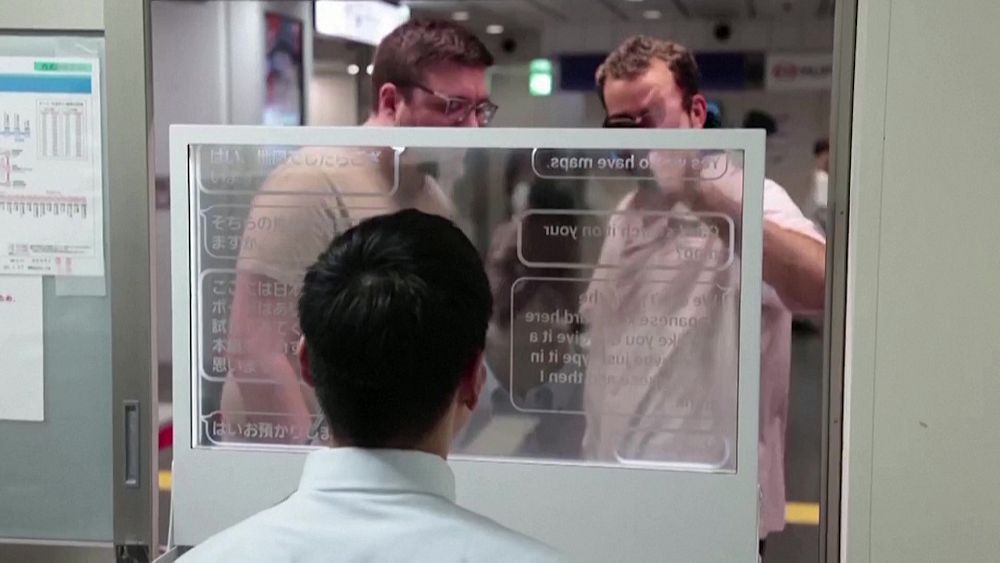
Standing 40 cm high and 70 cm wide, the semi-transparent display has translations pop up simultaneously on the screen as the station staff and a foreign tourist speak.
Seibu Railway, one of the country’s large railroad companies, is implementing a new simultaneous translation system to help foreign tourists navigate Tokyo’s metro which is notorious for its complexity.
Multiple private companies in Tokyo serve 3.9 billion railways passengers per year.
Standing 40cm high and 70cm wide, this new semi-transparent display has translations pop up simultaneously on the screen as the station staff and foreign tourists communicate.
“The display we have introduced can automatically translate between Japanese and other languages. When customers speak in a foreign language, the station attendant can see it in Japanese, and when the station attendant speaks Japanese, customers can read the sentences in their own language,” said Ayano Yajima, Seibu Railway Sales and Marketing supervisor.
“Google Translate isn’t always available because you don’t always have Wi-Fi everywhere you go, so places like this, it’s also much faster than pulling up your phone, typing everything out, showing it and (there being) misunderstandings. Having it like this, clear on the screen, it’s really nice,” said Kevin Cometto, an Italian student visiting Japan.
The VoiceBiz UCDisplay supports Japanese and 11 other languages including English, French, and Spanish.
The station staff previously used translation apps.
But with the translation window, a face-to-face conversation through the screen is possible, complete with facial expressions and gestures.
According to Seibu Railway, the device is designed to help customers with more complex requests such as seeking directions or information about the local area.
Traditional ticket machines and manned windows are also still available.
The display is installed at Seibu-Shinjuku station, one of Tokyo’s most complex transportation hubs which serves around 135,000 passengers a day.
It is located in a popular area called Shinjuku. One transit station nearby, Shinjuku Station, has 53 total platforms across the 12 train lines with 200 different exits, which often confuses first-time visitors.
The VoiceBiz UCDisplay can assist tourists with common queries about services offered by other railway companies as well.
After the company tests the system for about three months, it aims for a full rollout this autumn.
According to Japan’s national broadcast NHK, JR East and Sagami Railway are also exploring options to have automated translation to ease foreigners’ experience.
For more on this story, watch the video in the media player above.






